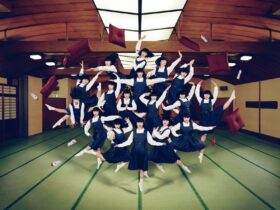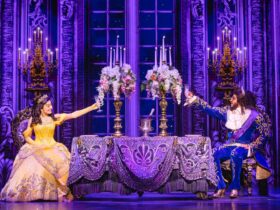We love this modern-day retelling of ‘Pride and Prejudice’ featuring Muslim characters
Photos: Weekender

Promise you will choose to live in a comedy instead of a tragedy.
(from Ayesha At Last by Uzma Jalaluddin)
The short quote above is said by our protagonist Ayesha’s grandfather, and it captures the beautiful celebration of joy and love in this romantic comedy.
Uzma Jalaluddin’s debut novel Ayesha At Last is marketed as “a modern-day Muslim Pride and Prejudice” set in Toronto, which might be a bit misleading. The Jane Austen classic serves as an inspiration for this novel’s themes and there are a few familiar moments that P&P fans would appreciate, but Jalaluddin creates an original plot and characters.
Ayesha Shamsi is constantly being reminded that she, at twenty-seven, should be married. After all, her pretty younger cousin Hafsa, who only just turned twenty, is already receiving several new marriage proposals a day and happily goes through the arranged marriage processes that are a norm in their Muslim community. Ayesha doesn’t believe in arranged marriages and wants to focus on job as a substitute teacher, and maybe even her aspirations to be a poet.
When she meets Khalid, a young man who always dresses in white robes and keeps a long beard, Ayesha is not surprised that he firmly believes in traditions like arranged marriages. Upon meeting each other for the first time, they both form hasty, negative opinions of each other: Ayesha immediately views him as a rigid and judgmental Muslim, even calling him a “fundy” (for fundamentalist); Khalid criticises her for not abiding to the Islamic moral principles closely enough.
But when unexpected circumstances bring them together, Ayesha and Khalid slowly get to know each other and find that their initial impressions may not have been true.

Things get complicated early on because of a case of mistaken identity, a classic trope in not only modern romantic comedies but also Shakespearean comedies. (Yup, P&P is not the only notable inspiration behind Ayesha At Last.) At the same time, there are many different characters and intersecting storylines happening that made the story feel a little soap opera-style dramatic. However, Jalaluddin expertly ties all the layers together under control and all the storylines are connected with a purpose towards the novel’s main themes.
One of the main storylines offers a rare look at racism in the workplace. At his tech firm, Khalid faces some very severe and appalling discrimination for his devout Islamic practices, from a terrible new boss. He becomes in danger in losing his job purely because his boss fears he is an extremist. The novel raises many difficult but important questions, primarily: should we compromise on our religious faith and beliefs in order to survive and appease others around us, if it will make our daily life easier?
We appreciate how Jalaluddin tackles the question with sensitivity. There is no liberal “makeover” towards the end to show that one lifestyle was “better” than the other, except to criticise some undoubtedly harmful outdated practices such as forced marriages.
Although the novel deals with serious and heavy topics, but like Ayesha’s grandfather encourages, Jalaluddin injects great humour and wit throughout the story. The romance between Ayesha and Khalid develops slowly and realistically. It does not sizzle with a lot of chemistry (for us, at least), but it is a sweet and mature relationship. The big, colourful cast of characters forms a delightful community we felt immersed in – every character is vivid and complex. If you are looking for a refreshing read with diverse characters and cultures, and one that offers much for stimulating discussion, Ayesha At Last is that and more.
Ayesha At Last is now available in bookstores. We’d like to thank Times Distribution for sending us a copy in exchange for an honest review.
ADVERTISEMENTS









Leave a Reply